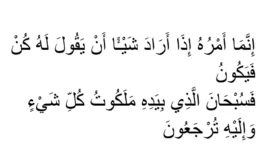A Prayer to Remain Peaceful and Happy at All Times
Many people long for a heart that is constantly at peace and filled with genuine happiness. In the Islamic tradition, one way to attain spiritual tranquility is by regularly reciting certain prayers (du’ās) that call upon the Divine names of God (Allah). The following prayer is recommended for anyone who wishes to draw closer to the Almighty and illuminate their heart with serenity and contentment.
1. The Essence of Peace and Happiness
Inner peace is considered a divine blessing that soothes both the heart and the soul. Islamic scholars often emphasize that turning toward God wholeheartedly and remembering His beautiful names can cleanse the heart from doubts and anxieties. By doing so, a person opens themselves to genuine, lasting joy. This perspective is thoroughly discussed by Imam al-Ghazālī (see Al-Maqsad al-Asnā fī Sharḥ Asmāʾ Allāh al-Ḥusnā) and further elaborated in various classical works.
2. The Prayer for Constant Happiness
If you wish for your heart to be free from restlessness and instead be filled with a sense of spiritual illumination, it’s recommended to recite the following prayer regularly. Through God’s grace, consistent recitation may lead to deeper calm and profound inner happiness.
2.1 Arabic Text
Below is the prayer written in the original Arabic script. Please note that the Arabic text is presented on a separate line from the transliteration, in keeping with the recommended format:
بِسْمِ اللّٰهِ الرَّحْمٰنِ الرَّحِيمِ
يَا اَللّٰهُ يَا رَحْمٰنُ يَا رَحِيمُ يَا عَلِيُّ يَا عَلِيمُ يَا عَظِيمُ يَا أَحَدُ يَا صَمَدُ يَا وِتْرُ يَا سَلَامُ يَا مُؤْمِنُ يَا مُهَيْمِنُ يَا بَصِيرُ يَا وَاحِدُ يَا كَرِيمُ يَا لَطِيفُ يَا حَلِيمُ يَا كَبِيرُ يَا مُتَكَبِّرُ يَا جَمِيلُ يَا جَلِيلُ يَا قَوِيُّ يَا عَزِيزُ يَا مُتَعَزِّزُ يَا حَنَّانُ يَا مَنَّانُ يَا تَوَّابُ يَا بَاعِثُ يَا بَرُّ يَا حَمِيدُ يَا مَجِيدُ يَا مَحْمُودُ يَا مَعْبُودُ يَا مَوْجُودُ يَا ظَاهِرُ يَا بَاطِنُ يَا طَاهِرُ يَا أَوَّلُ يَا آخِرُ يَا حَيُّ يَا قَيُّومُ يَا شَامِخُ يَا وَاسِعُ يَا سَلَامُ يَا رَفِيعُ يَا مُرْتَفِعُ يَا نُورُ ذُو الْقُوَّةِ وَالْإِكْرَامِ
2.2 Transliteration
Bismillâhirrahmânirrahîm.
Yâ Allahü yâ Rahmânü yâ Rahîmü yâ Aliyyü yâ Alîmü yâ Azîmü yâ Ehadü yâ Samedü yâ Vitrü yâ Selâmü yâ Mü’minü yâ Müheyminü yâ Basîru yâ Vâhidü yâ Kerîmü yâ Latîfü yâ Halîmü yâ Kebîru yâ Mütekebbirü yâ Cemîlü yâ Celîlü yâ Kaviyyü yâ Azîzü yâ Müteazzizü yâ Hannânü yâ Mennânü yâ Tevvâbü yâ Bâısü yâ Bârrü yâ Hamîdü yâ Mecîdü yâ Mahmudü yâ Ma’budü yâ Mevcudü yâ Zâhiru yâ Bâtınü yâ Tâhirü yâ Evvelü yâ Ahirü yâ Hayyü yâ Kayyumü yâ Şâmihu yâ Vâsiu yâ Selâmü yâ Refîu yâ Mürtefiu yâ Nurü Zülkuvveti vel ikrâm.
2.3 English Meaning
In the Name of Allah, the Most Compassionate, the Most Merciful.
“O Allah, O the Most Merciful, O the Most Gracious, O the Exalted, O the All-Knowing, O the Magnificent, O the One and Only, O the Self-Sufficient, O the One Who Chooses, O the Source of Peace, O the Granter of Faith, O the Protector, O the All-Seeing, O the Unique, O the Generous, O the Subtle, O the Forbearing, O the Great, O the Majestic, O the Beautiful, O the Powerful, O the Almighty, O the Compassionate, O the Bestower, O the Ever-Accepting of Repentance, O the Resurrector, O the Source of Goodness, O the Praised, O the Glorious, O the One Who is Praised and Worshipped, O the Ever-Present, O the Manifest, O the Hidden, O the Pure, O the First, O the Last, O the Ever-Living, O the Self-Subsisting, O the Most High, O the All-Encompassing, O the Source of Peace, O the One Who Raises, O the All-Elevating, O the Light Who Possesses Power and Generosity.”
By reciting this prayer, one calls upon the Divine Names (Asmaʾ al-Husna), each reflecting an attribute of God that can bring solace, strength, and a sense of spiritual closeness to the heart.
3. The Effects and Virtues of This Prayer
- Instills Inner Peace: Reciting the Divine Names helps alleviate worry, anxiety, and inner turmoil.
- Cultivates Spiritual Nearness: Frequent remembrance of God nurtures a stronger bond with the Creator.
- Promotes Emotional Resilience: These recitations reinforce hope and positivity, offering protection against negativity and despair.
Classical scholars like Imam al-Nawawī (see al-Adhkār) and Ibn Qayyim al-Jawziyya (see al-Wābil al-Ṣayyib) highlight the transformative power of du’ā and dhikr, emphasizing their potential to illuminate the heart and uplift the spirit.
4. Practical Suggestions for Recitation
- Consistency Matters: Set aside time in the morning or evening to recite this prayer, giving yourself a quiet space to reflect on its meaning.
- Reflect on the Divine Names: Instead of merely reciting from memory, ponder the majesty behind each name and attribute.
- Maintain Sincerity: The effectiveness of any du’ā is closely linked to the sincerity and devotion in one’s heart.
Sources
- Imam al-Ghazālī, Al-Maqsad al-Asnā fī Sharḥ Asmāʾ Allāh al-Ḥusnā
- Imam al-Nawawī, al-Adhkār
- Ibn Qayyim al-Jawziyya, al-Wābil al-Ṣayyib
By consistently reciting and contemplating this powerful prayer, one may find the heart gradually freed from burdens and filled with serenity. True peace and happiness lie in remembering the Almighty, for indeed, as the Quran reminds us, “Hearts find rest in the remembrance of God.”





